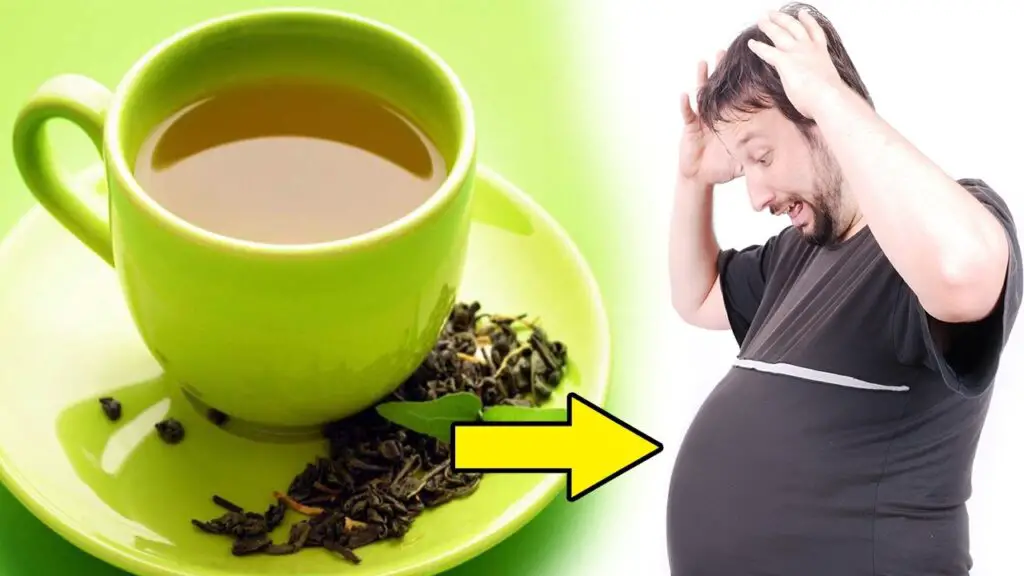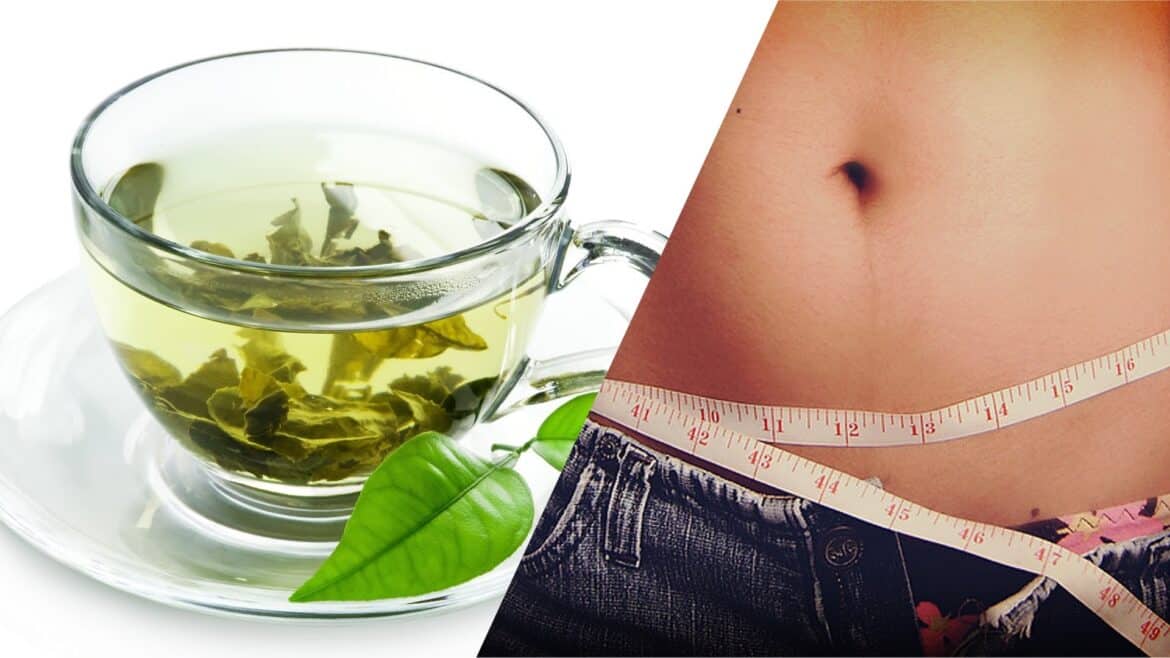Introduction
How Make Green Tea For Weight Loss: Green tea has long been celebrated for its potential health benefits, and its role in aiding weight loss is a subject of considerable interest. Packed with antioxidants and other bioactive compounds, green tea has been associated with metabolism-boosting properties that may support a weight loss journey when combined with a healthy diet and exercise. In this article, we will explore how to make green tea for weight loss, discussing various methods and tips for maximizing its potential benefits. From the traditional loose-leaf tea to convenient green tea bags and even green tea extract, we will guide you through the process of harnessing the power of green tea to complement your weight loss efforts. So, join us as we steep into the world of green tea and discover how this natural beverage can be a refreshing addition to your path towards a healthier lifestyle.
In the quest for effective and sustainable weight management, green tea stands out as a popular and natural choice. Its potential to promote weight loss is rooted in its rich history, cultural significance, and scientific studies. However, making green tea for weight loss isn’t just about brewing a beverage; it’s about understanding the nuances of tea preparation, the choice of tea leaves or bags, and the timing of consumption.
We will delve into the art of brewing green tea specifically for weight loss. We will explore the different types of green tea, the ideal water temperature and steeping times, and how to incorporate green tea into your daily routine for maximum effectiveness. Whether you’re embarking on a weight loss journey or simply looking to enjoy the soothing and healthful benefits of green tea, this article will equip you with the knowledge and techniques to make green tea a mindful and enjoyable part of your wellness regimen. So, let’s embark on this tea-infused journey towards better health and well-being.

How to make green tea good for weight loss?
Boil a cup of water and add organic green tea leaves to it. Let it sit for 10 minutes. Strain the tea in a cup and add a few drops of fresh lemon juice to it. Add a few drops of honey if you want.
Avoid Adding Sugar: To maximize green tea’s weight loss potential, avoid adding sugar or high-calorie sweeteners. If you prefer sweetness, try natural alternatives like a touch of honey or stevia.
Consistency is Key: Make green tea a daily habit. Drinking a cup or two consistently over time may have a cumulative effect on your metabolism.
Timing Matters: Consider having a cup of green tea before a meal. Some studies suggest that the catechins in green tea may help reduce appetite and promote a feeling of fullness.
Exercise and a Balanced Diet: Remember that green tea is not a magic solution for weight loss. It works best when combined with a balanced diet and regular physical activity. Focus on overall health and wellness.
Stay Hydrated: While green tea can be a part of your daily hydration, don’t rely on it exclusively for fluid intake. Drink plenty of water throughout the day.
Monitor Caffeine Intake: Green tea contains caffeine, which can affect some individuals. Be mindful of your caffeine tolerance, especially if you are sensitive to it, and avoid drinking green tea too close to bedtime.
How much green tea do you have to drink a day to lose weight?
Experts recommend replacing calorific drinks with two cups of unsweetened green tea a day to help you achieve weight loss goals and stay in shape. Try a cup an hour or two after breakfast and another after lunch.
Caffeine Content: Green tea contains caffeine, which can have a thermogenic effect (increasing metabolism and fat oxidation). However, excessive caffeine intake can lead to side effects like jitteriness and sleep disturbances. If you’re sensitive to caffeine, it’s best to start with a lower amount and gradually increase it to assess your tolerance.
EGCG Content: Epigallocatechin gallate (EGCG) is a key compound in green tea associated with weight loss benefits. Consuming green tea with a higher EGCG content may be more effective. Matcha green tea, for example, is particularly rich in EGCG.
Meal Timing: Some studies suggest that drinking green tea before meals may help reduce appetite and enhance feelings of fullness. Consider having a cup of green tea 30 minutes to an hour before a meal.
Consistency: Consistency in your green tea consumption is important. Rather than drinking a large quantity in one sitting, spreading your intake throughout the day can be more beneficial.
Caloric Intake: Be mindful of the overall caloric intake from beverages. If you’re adding sweeteners or high-calorie ingredients to your green tea, it can counteract its potential weight loss benefits.
How to drink green tea to lose belly fat?
Having 2-3 cups of green tea per day usually suffice, depending on the amount of EGCG. The best time is 30minutes after a meal or a cup or two before your workout session. Drinking it with each meal can help you feel very full so you would consume fewer calories.
Choose the Right Green Tea: Select a high-quality green tea that is rich in antioxidants and beneficial compounds. Matcha green tea, for example, is known for its high EGCG content and may offer additional benefits.
Stay Hydrated: While green tea can be a part of your daily fluid intake, remember to drink plenty of water throughout the day for proper hydration.
Limit Sugar and Calories: Avoid adding sugar or high-calorie sweeteners to your green tea. Opt for natural sweeteners like a touch of honey or stevia if needed. Excess sugar can contribute to weight gain, including abdominal fat.
Mindful Consumption: Instead of drinking large quantities of green tea at once, spread your intake throughout the day. Drinking 3 to 5 cups of green tea daily is often recommended.
Timing Matters: Consider having a cup of green tea 30 minutes to an hour before a meal. Some studies suggest that this may help reduce appetite and promote feelings of fullness.
Is 1 cup of green tea a day enough?
The Bottom Line. Green tea is packed full of health-promoting compounds. Regularly drinking green tea can help you lose weight and reduce your risk of several diseases, including diabetes, heart disease and cancer. Drinking three to five cups of green tea per day seems to be optimal to reap the most health benefits.
Metabolism Boost: Green tea contains compounds, such as catechins and caffeine, that can help increase metabolism and fat oxidation. Drinking more cups throughout the day can provide a cumulative effect.
Appetite Suppression: Some studies suggest that green tea may help reduce appetite and promote feelings of fullness. Consuming multiple cups may help in controlling hunger.
Antioxidant Benefits: Green tea is rich in antioxidants, which can protect cells from oxidative damage. Consuming more cups means a higher intake of these beneficial compounds.
Consistency: Drinking green tea consistently throughout the day ensures a more steady intake of its active compounds.
Hydration: Green tea can contribute to your daily fluid intake. More cups mean better hydration.
How to lose weight in 3 days with green tea?
Drinking between 2 and 3 cups of hot green tea throughout the day should be sufficient for supplementing weight loss. The exact amount will vary from person to person, depending on how much caffeine they consume and their natural metabolism.
Set Realistic Goals: Aim for a safe and realistic rate of weight loss, which is typically about 1-2 pounds per week. Rapid weight loss is usually not sustainable and can lead to muscle loss instead of fat loss.
Balanced Diet: Consume a balanced and calorie-controlled diet that includes a variety of whole foods, such as fruits, vegetables, lean proteins, whole grains, and healthy fats. Avoid extreme calorie restriction or crash diets.
Portion Control: Pay attention to portion sizes to avoid overeating. Eating smaller, frequent meals throughout the day can help control hunger.
Regular Exercise: Engage in regular physical activity, including both aerobic exercises (like brisk walking or jogging) and strength training (to build muscle). Exercise is crucial for burning calories and improving overall fitness.
Stay Hydrated: Drink plenty of water throughout the day to stay properly hydrated. Green tea can be part of your fluid intake.
Can I drink green tea at night?
There have been a number of studies to prove that drinking a cup of green tea at night, an hour before bedtime can be incredibly beneficial in the weight loss journey. The reason for this is that it increases your metabolic rate, and some research suggests up to as much as 4%.
Opt for Decaffeinated Green Tea: Decaffeinated green tea is available and can be a good choice if you want to enjoy the flavor and potential health benefits of green tea without the caffeine. Decaffeinated green tea usually contains only trace amounts of caffeine.
Choose Low-Caffeine Varieties: Some green tea varieties have lower caffeine content than others. For example, Japanese sencha tea tends to have less caffeine than Chinese green teas. Matcha green tea can have higher caffeine content due to the whole-leaf consumption.
Limit Evening Consumption: If you decide to drink regular green tea in the evening, try to do so at least a few hours before bedtime to allow the caffeine to metabolize. Avoid drinking it right before bed.
Monitor Your Tolerance: Everyone’s sensitivity to caffeine varies. Some people can drink green tea in the evening without sleep disturbances, while others may be more affected. Pay attention to how your body responds and adjust your consumption accordingly.
Herbal Alternatives: If you prefer a caffeine-free option for nighttime, consider herbal teas such as chamomile, peppermint, or lavender, which are known for their calming properties and are less likely to interfere with sleep.
Can I drink green tea on empty stomach?
You have to drink green tea between meals or after a meal. Drinking green tea on an empty stomach in the morning may harm the liver due to its high catechin content. Catechins, a type of disease-fighting flavonoid and antioxidant, are key to the health benefits of Green Tea.
Caffeine Sensitivity: Green tea contains caffeine, although the caffeine content is lower than that of coffee. If you have a sensitive stomach or are particularly sensitive to caffeine, drinking green tea on an empty stomach may lead to stomach discomfort for some individuals. In such cases, consider eating a small meal or snack before or with your green tea to mitigate potential discomfort.
Potential Benefits: Some people choose to drink green tea on an empty stomach in the morning as part of their daily routine. This practice may provide a mild energy boost due to the caffeine content and help with alertness and concentration.
Acidity: Green tea is generally considered less acidic than coffee, but it can still be slightly acidic. If you have acid reflux or a sensitive stomach, be mindful of how your body reacts to green tea on an empty stomach. If you experience discomfort, consider having it with food.
Hydration: Drinking green tea on an empty stomach can contribute to your daily fluid intake and help with hydration. Staying hydrated is important for overall health.
What is the best time to drink green tea?
Drinking a cup of green tea in the morning 1-2 hours after breakfast or in the afternoon 1 to 2 hours after lunch is the optimal time to drink green tea to boost your antioxidant dose.
Morning: Drinking green tea in the morning can provide a gentle caffeine boost and help increase alertness and concentration. It can be a refreshing way to start your day. Some people prefer to have green tea instead of coffee in the morning for a milder caffeine intake.
Before Meals: Having a cup of green tea 30 minutes to an hour before meals may help reduce appetite and promote feelings of fullness. This can potentially support weight management efforts by preventing overeating.
After Meals: Some individuals enjoy green tea after meals as a digestive aid. It may help with digestion and prevent bloating.
Between Meals: Drinking green tea between meals can provide hydration and a mild energy boost. It can be a healthy alternative to sugary or high-calorie beverages.
Before Exercise: Green tea contains antioxidants that can help improve endurance and fat oxidation during exercise. Having a cup before a workout may be beneficial.
Before Bed: Opt for decaffeinated green tea or caffeine-free herbal teas (like chamomile) before bedtime to relax and unwind. Avoid regular green tea with caffeine close to bedtime, as it can interfere with sleep for some individuals.

Conclusion
As we conclude our exploration of how to make green tea for weight loss, it’s evident that this natural beverage offers a refreshing and potentially beneficial addition to a healthy lifestyle. Green tea’s rich history, abundant antioxidants, and potential metabolism-boosting properties have made it a popular choice for those seeking to manage their weight.
By mastering the art of brewing green tea, understanding its various forms, and adopting mindful consumption habits, you can harness the potential benefits of green tea to support your weight loss goals. Whether you prefer loose-leaf green tea, convenient tea bags, or even green tea extract, the key lies in consistency and balance.
Remember that green tea is not a magic solution for weight loss but rather a complementary tool in a broader journey towards better health. It pairs best with a balanced diet, regular physical activity, and an overall healthy lifestyle. So, as you enjoy the soothing aroma and flavors of green tea, savor the potential benefits it may bring to your wellness journey, and embrace a holistic approach to a healthier, happier you.

